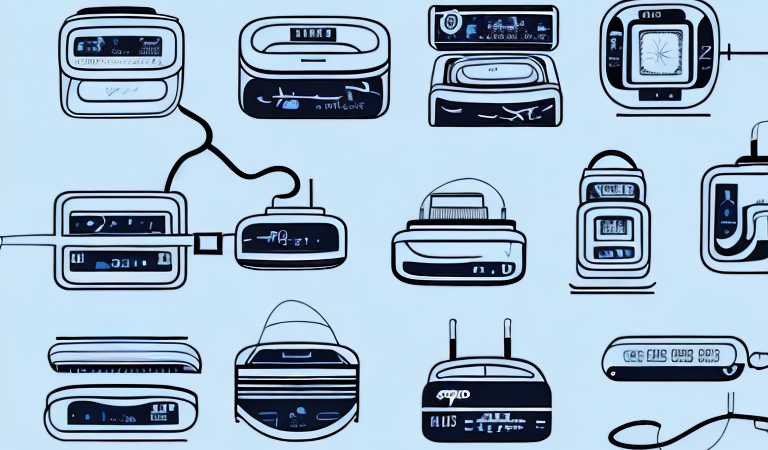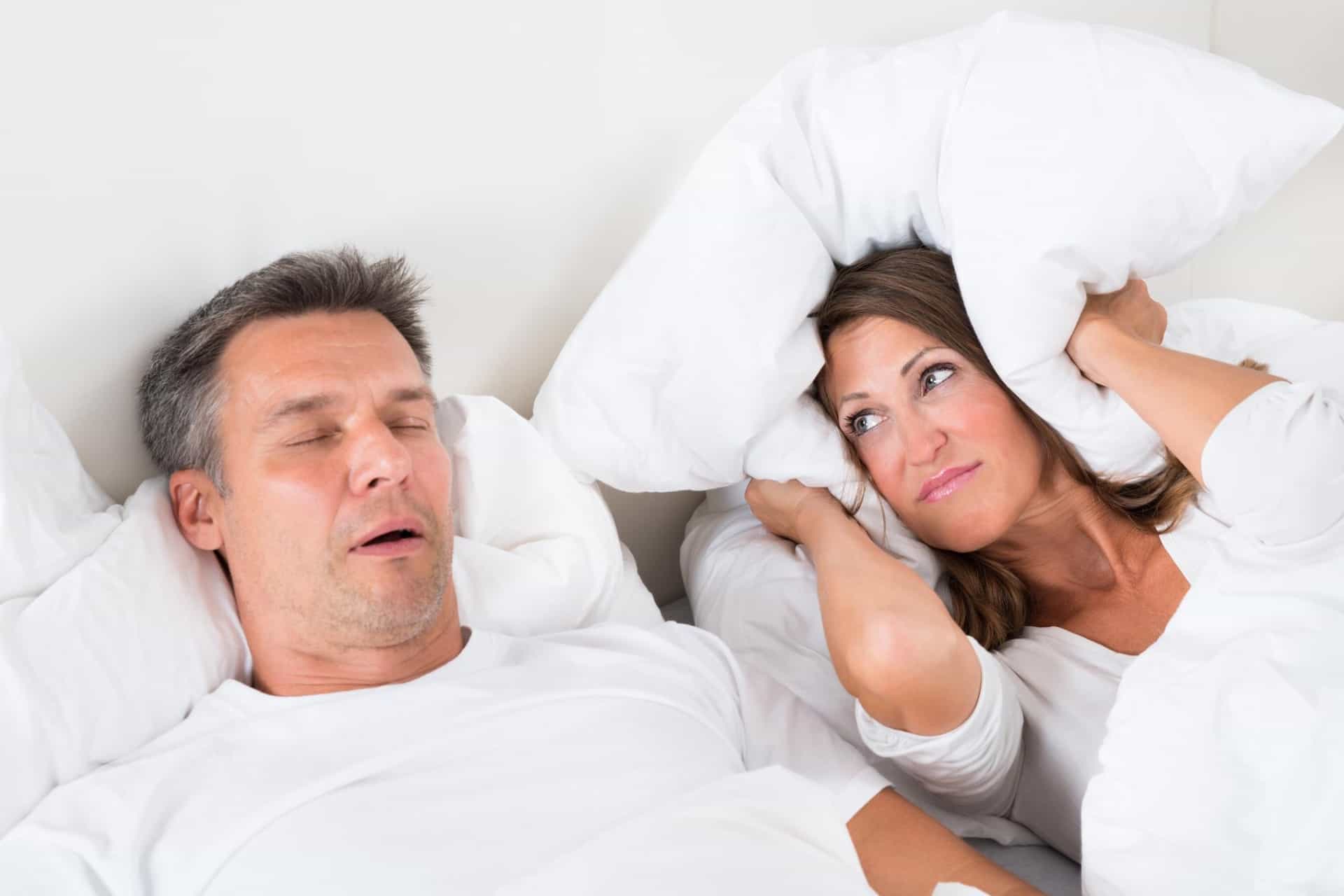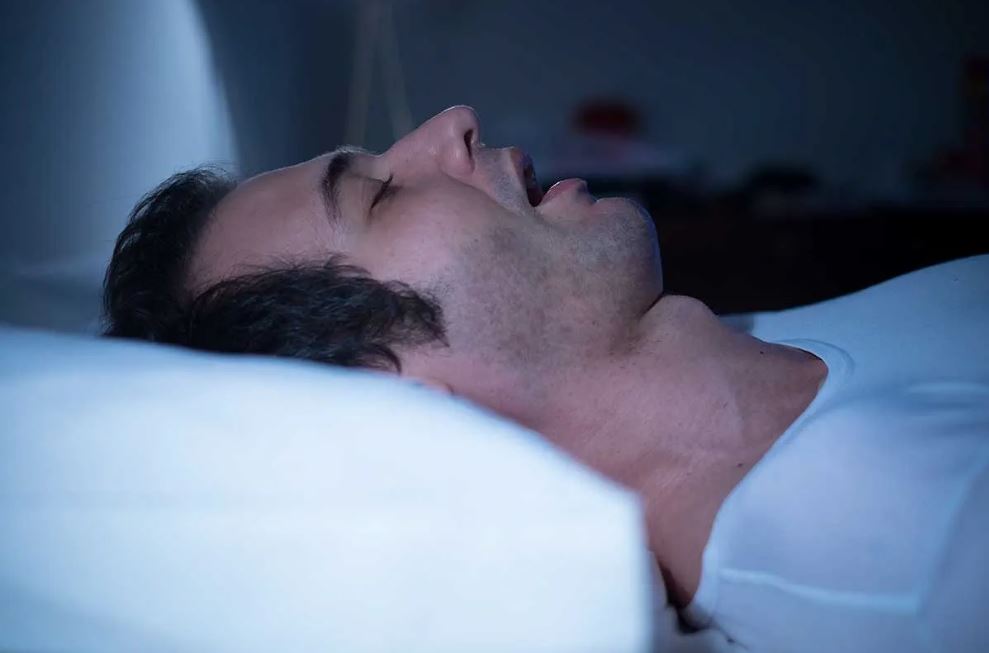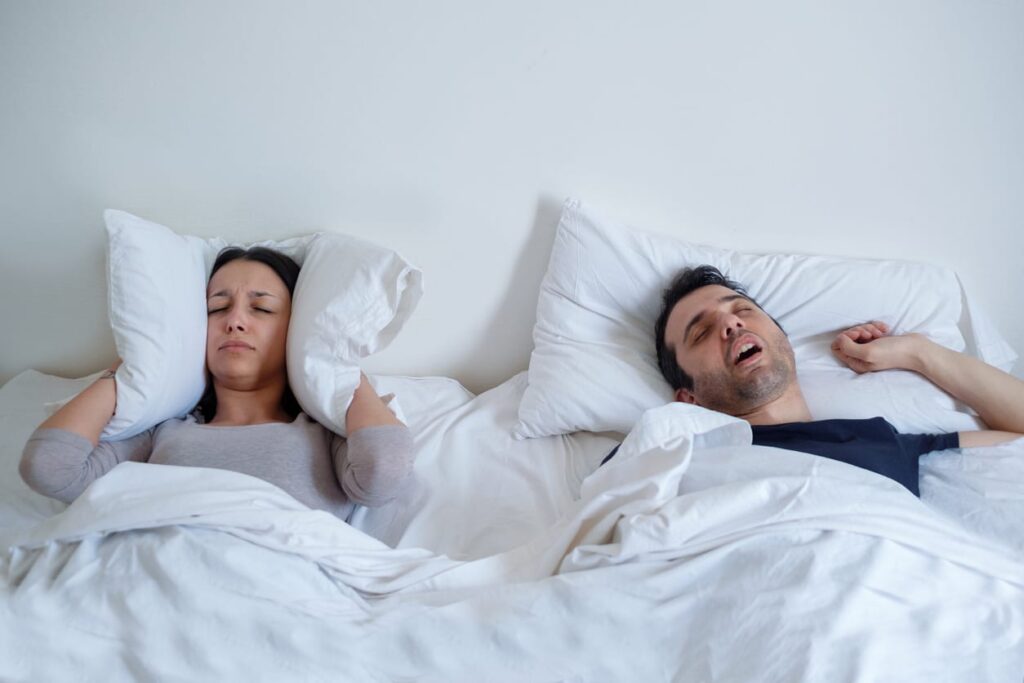Sleep apnea is a common condition that affects a lot of people worldwide. It is a disorder characterized by intermittent breathing during sleep, leading to oxygen deprivation in the body. If left untreated, sleep apnea can lead to several health complications, including high blood pressure, cardiovascular disease, diabetes, and even stroke. Luckily, there are effective treatment options for sleep apnea, and one of the most popular ones is using sleep apnea machines. In this article, we will provide you with an in-depth comparison and buying guide for the top 5 sleep apnea machines for 2023.
Introduction to Sleep Apnea and Its Treatment
Understanding Sleep Apnea
Sleep apnea is a common sleep disorder that affects millions of people worldwide. It is a condition in which your breathing is interrupted while sleeping. These pauses can last anywhere from a few seconds to a minute and can happen up to several hundred times a night. The most common type of sleep apnea is Obstructive Sleep Apnea (OSA), which occurs when the soft tissue in your throat collapses, blocking the airway. Central Sleep Apnea (CSA) is another type of sleep apnea, and it is caused by the brain’s failure to send proper signals to the muscles that control breathing.
It is important to note that sleep apnea can affect anyone, regardless of age or gender. However, certain factors can increase your risk of developing sleep apnea, such as obesity, smoking, alcohol consumption, and a family history of sleep apnea.
Importance of Sleep Apnea Treatment
It is crucial to seek treatment for sleep apnea because it can lead to several serious health issues. Sleep apnea can cause excessive daytime sleepiness, fatigue, and headaches. If left untreated, sleep apnea can cause high blood pressure, heart disease, stroke, and even death. By treating sleep apnea, you can improve your overall quality of life and reduce your risk of developing serious health problems.
There are several treatment options available for sleep apnea, including lifestyle changes, surgery, and the use of sleep apnea machine.
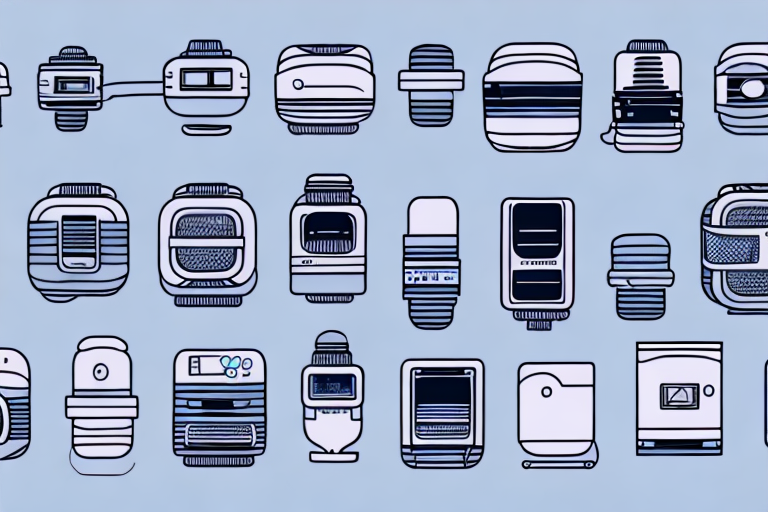
How Sleep Apnea Machines Work
A sleep apnea machine, also known as a Continuous Positive Airway Pressure (CPAP) machine, is a common treatment option for sleep apnea. It works by delivering a continuous flow of air through a mask that covers your nose or mouth. The air pressure keeps your airway open, ensuring that you breathe easily while sleeping. Sleep apnea machines come in different types, and they vary in terms of features, noise level, size, and portability. When choosing a sleep apnea machine, there are several factors that you need to consider.
One of the most important factors to consider when choosing a sleep apnea machine is the noise level. Some machines can be quite loud, which can be disruptive to your sleep and your partner’s sleep. Additionally, you should consider the size and portability of the machine, especially if you plan on traveling with it.
It is important to note that using a sleep apnea machine can take some getting used to. It may feel uncomfortable at first, and it can take some time to find the right mask and air pressure settings that work for you. However, with time and patience, most people are able to adjust to using a sleep apnea machine and experience significant improvements in their sleep quality and overall health.
In conclusion, sleep apnea is a serious sleep disorder that can have significant health consequences if left untreated. If you suspect that you may have sleep apnea, it is important to seek medical attention and explore your treatment options. With the right treatment, you can improve your sleep quality, reduce your risk of developing serious health problems, and enjoy a better quality of life.
Factors to Consider When Choosing a Sleep Apnea Machine
Sleep apnea is a common sleep disorder that affects millions of people worldwide. It is a condition where your breathing repeatedly stops and starts while you sleep, which can cause fatigue, daytime sleepiness, and other health problems. Fortunately, sleep apnea machines are available to help manage this condition. However, choosing the right sleep apnea machine can be overwhelming, given the numerous options available in the market. In this article, we will discuss the factors to consider when choosing a sleep apnea machine.
Type of Sleep Apnea Machine
As mentioned earlier, there are several types of sleep apnea machines available in the market. The most common type is the Continuous Positive Airway Pressure (CPAP) machine, which delivers a continuous flow of air pressure to keep your airway open. However, other types of sleep apnea machines may be more suitable for your needs. For instance, a Bi-level Positive Airway Pressure (BiPAP) machine may be more appropriate if you have trouble exhaling against the pressure of a CPAP machine. Alternatively, an Automatic Positive Airway Pressure (APAP) machine may be more suitable if you have varying air pressure needs throughout the night. Therefore, it is essential to consult a sleep specialist to determine which type of machine is best for you.
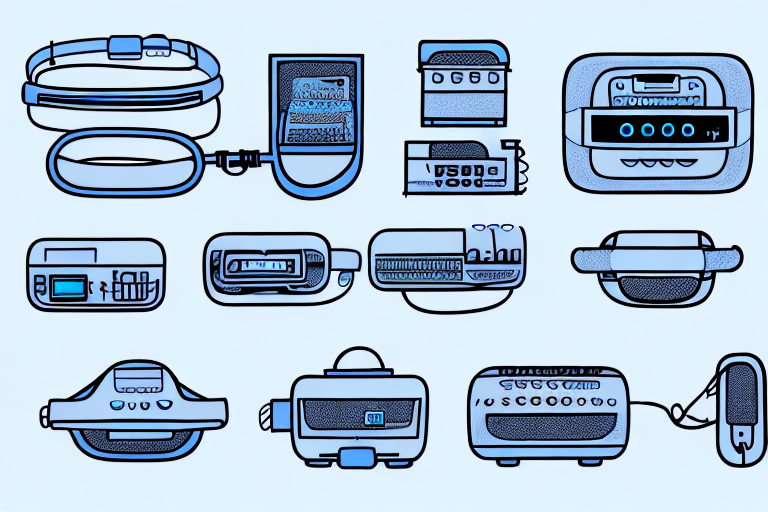
Noise Level
Noise level is another essential factor to consider when choosing a sleep apnea machine. Some machines can be noisy, which can be disruptive to your sleep and that of your partner. However, newer models come with noise-reducing features such as special masks and hoses that minimize noise. Additionally, some machines have a quiet mode, which reduces the noise level significantly. Therefore, it is essential to choose a machine that produces minimal noise to ensure a peaceful sleep environment.
Size and Portability
The size and portability of a sleep apnea machine are also crucial factors to consider, especially if you travel frequently. The machine should be lightweight and compact enough to fit in your luggage. Additionally, some machines come with travel cases and battery packs, making them more convenient to use on-the-go. Therefore, it is essential to choose a machine that is easy to transport and does not take up too much space.
Ease of Use and Maintenance
The ease of use and maintenance of a sleep apnea machine is another critical factor to consider. The machine should be easy to operate, with a user-friendly interface that allows you to adjust the air pressure and other settings easily. Additionally, the machine should be easy to clean and maintain, with replaceable parts that are readily available. Therefore, it is essential to choose a machine that comes with clear instructions and features that simplify maintenance tasks.
Price and Insurance Coverage
The cost of a sleep apnea machine varies depending on the type and features. Some machines are more expensive than others, and you want to choose a machine that fits within your budget. However, it is essential to note that cheaper machines may not have all the features you need to manage your sleep apnea effectively. Additionally, it is vital to check with your insurance provider to see if they cover any or all of the costs of a sleep apnea machine. Some insurance plans may cover the cost of the machine entirely, while others may cover a portion of the cost.
In conclusion, choosing the right sleep apnea machine is essential for managing your sleep apnea effectively. Consider the factors discussed above when choosing a machine to ensure that you get the best machine for your needs.
Top 5 Sleep Apnea Machines for 2023
Sleep apnea is a common sleep disorder that affects millions of people worldwide. It occurs when a person’s breathing is interrupted during sleep, leading to snoring, gasping, and even waking up abruptly. Fortunately, sleep apnea machines can help manage this condition by providing continuous positive airway pressure (CPAP), automatic positive airway pressure (APAP), or bilevel positive airway pressure (BiPAP) therapy. In this article, we will review the top 5 sleep apnea machines for 2023.
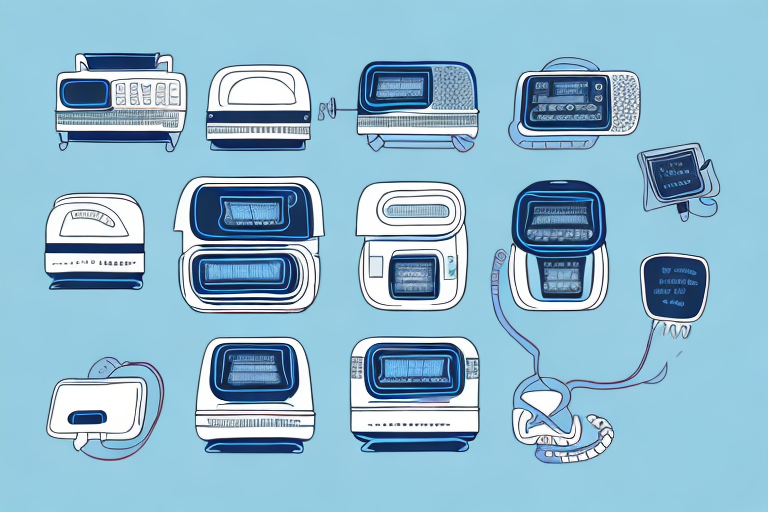
1. Sleep Apnea Machine A: Overview and Features
Sleep Apnea Machine A is a CPAP machine that features a compact design, making it easy to travel with. Its small size does not compromise its performance, as it delivers effective therapy to alleviate sleep apnea symptoms. With a noise level of 26 dB, it is one of the quietest sleep apnea machines on the market, ensuring a peaceful night’s sleep. The machine comes with a humidity control system that adds moisture to the air, preventing dryness and irritation in the airways. It also features an easy-to-use interface that allows you to adjust the air pressure and other settings to your preference.
2. Sleep Apnea Machine B: Overview and Features
Sleep Apnea Machine B is an APAP machine that adjusts the air pressure automatically based on your breathing patterns. This feature ensures that you receive the optimal pressure required to keep your airways open throughout the night. With a noise level of 29 dB, it is one of the quietest APAP machines available, ensuring a peaceful and uninterrupted sleep. The machine comes with a heated humidifier that adds moisture to the air, preventing dryness and irritation in the airways. It also features a built-in mask cleaner that eliminates bacteria …

